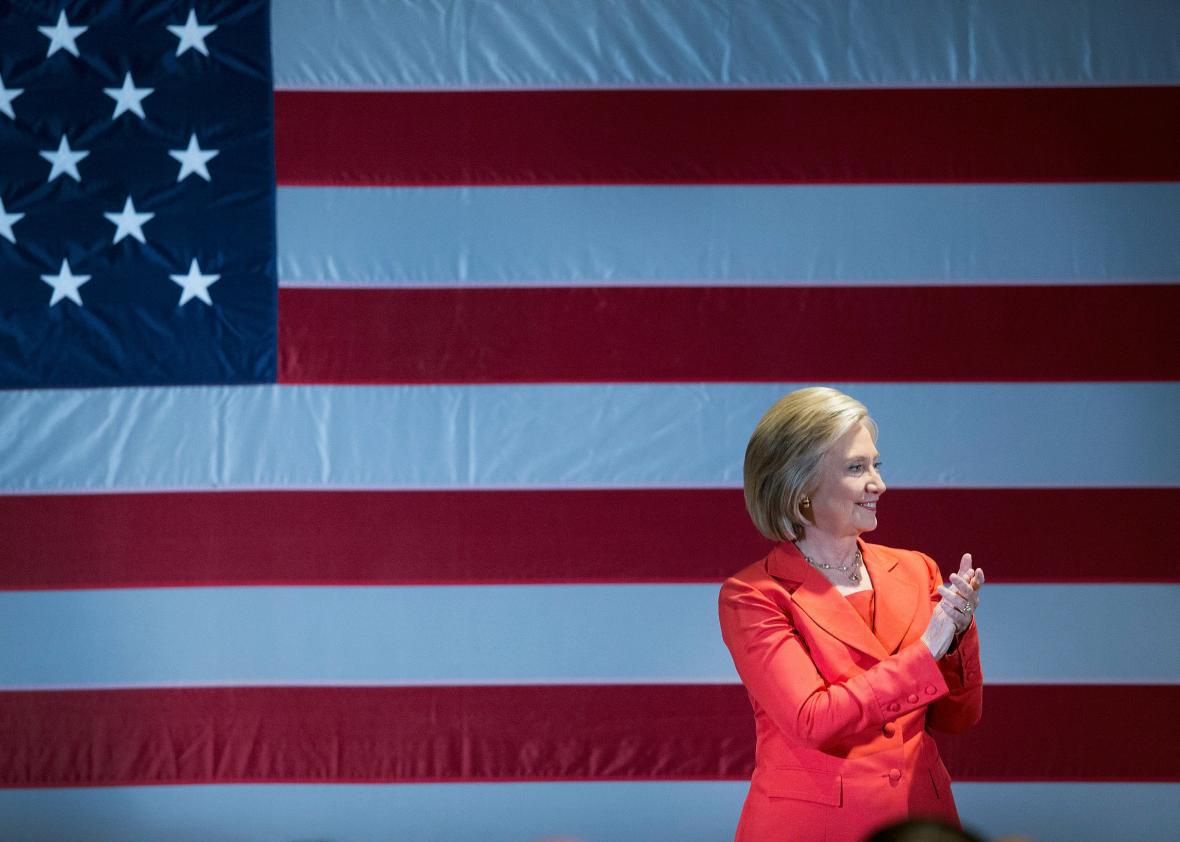This month’s batch of Hillary Clinton emails might not create any new legal headaches for the Democratic frontrunner—but it will make her current political one even more painful.
According to the State Department, the tranche of Clinton’s previously private emails set to be released at 9 p.m. on Monday includes roughly 150 messages that contained information that has since been deemed classified. “We look at these emails and we upgrade them as necessary as we see fit,” State spokesman Mark Toner told reporters on Monday. “We stand by our position that the information we upgraded was not marked classified at the time it was sent.”
The since-redacted information, according to the agency, has been classified as “confidential,” not at the higher “top secret” level.
After Monday’s release of roughly 7,000 pages worth of emails, the State Department will have made public roughly a quarter of the 55,000 or so pages that Clinton and her team turned over to the agency late last year. By court order, the department has until Jan. 29, 2016—the Friday before the Iowa Caucus—to release all of the emails. That timetable all but ensures a steady drip-drip-drip of unfavorable coverage for the Democratic frontrunner between now and 2016’s first nominating contest.
The previously released batches of Clinton’s emails included 63 messages that had been partially redacted due to security concerns, according to Politico’s Josh Gerstein. The State Department has maintained that all of that information was classified only after-the-fact as well—although intelligence community watchdogs have disputed that claim. In that regard, then, the newest revelation that Clinton sent or received sensitive information on her private account doesn’t raise new questions as much it re-raises the same ones: Did Clinton know the information was sensitive at the time she handled it? Should she have known that it would one day be classified?
The first question is likely unanswerable by reporters—and Clinton will almost certainly be shielded from prosecution as a result. It is illegal for someone to “knowingly” receive classified material and then turn around and send along that info in an unclassified email. But as long as Clinton can say she did not know that any classified information that crossed her server was classified at the time, many legal experts agree, she’s unlikely to face criminal charges. The second question, though, will continue to bring with it political repercussions: Claiming ignorance or indifference to how the intelligence community works may provide legal cover but it’s hardly a case for competence.
For (much!) more on Clinton’s private email saga, check out this detailed Slate explainer from earlier this month.
